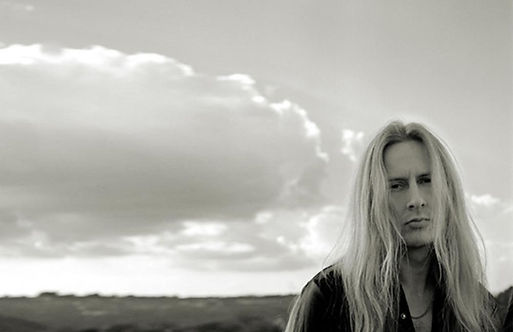
The process for Degradation Trip to see the light was extremely complex and full of problems to overcome for Jerry Cantrell. The story of this masterpiece dates from 1998, when the promotional tour for his first album "Boggy Depot" had finished, the guitarist decided to make a self-exile in a house in Cascade Mountains, Washington State with only some of his dogs and cats, to give life to these 25 songs we know today as Degradation Trip Volumes 1 & 2. The album title comes precisely from this period of confinement and describes the process and feelings of Cantrell in this place where he was isolated by choice.Cantrell spent a period of reflection and transition that had plunged him into something like a total reconsideration of his career and life.
The situation with Alice in Chains seemed to get darker in terms of making music together again. Jerry had assumed that his brother of a thousand battles was no longer able to take the microphone again and Layne, apparently didn´t want to happen that as well. In words of Jerry Cantrell: "You go through periods that begin and end. You might not like them to, but they do and you move on to other things and you hope you carry things from your past and you keep those connections. This was all about kinda' doing it, moving on and changing a lot of things."
Degradation Trip
If Dirt is the masterpiece made by Alice in Chains, If Mad Season´s Above is the musical autobiography of Layne Staley, then the second solo effort from Jerry Cantrell, Degradation Trip, show us the masterpiece of the Lord of the Dark Riff.

Unlike other albums in which Jerry Cantrell has participated Jerry Cantrell, for songwriting and subsequent recording he used just one guitar, a Gibson Les Paul ivory with cigarette burns everywhere, which gives some notice of the environment and mood Cantrell had at this point in his life. In the beginning of the process of songwriting composition, the guitar fell and broke his neck completely. However, it was fixed and Jerry continued with the writing sessions.
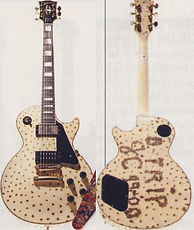

Gibson Les Paul Ivory
By April 2000, Jerry already had a little over 30 songs written, so he put aside his confinement and began to search for a band to begin the recording process of this magnificent piece. Cantrell had the idea of forming a band completely distant from his relationship with Alice in Chains, although he thought about Sean for the drums parts, but this was unsuccessful. According to Jerry this was kind of natural due to the way things were in Alice. The musicians who were invited for the rhythm section were Mike Bordin (Faith No More) and Robert Trujillo (Suicidal Tendencies). Jerry knew Mike and respected a lot his work in Faith No More, but they were not close friends.
Jerry contacted him via phone and put some demos that Jerry had with vocals, guitar and bass but with no drums, leaving open the possibility that Mike could and put his creativity on drums. Jerry knew much better Robert Trujillo because Suicidal Tendencies and with Alice in Chains toured together. Jerry on how he thought about Robert, as the bassist for Degradation Trip: “I knew Robert probably better and longer because we had toured together, Alice and Suicidal Tendencies. But it was a comment that he had made to my guitar tech that did it. Robert said, "Tell Jerry that if he's ever interested in doing something together I'd really like to play with him."So it was a little mental note I kept in my head, and when I started writing this stuff, he was really the only guy that ever came to mind, especially as far as, like, stepping completely out of the Alice camp.”
Once the band was already formed, Jerry Cantrell decided to hire the producer of Alice in Chains albums, Facelift and Dirt, Dave Jerden, to orchestrate the gears that would give life to the album. However, in the second day in the studio, the producer-artist relationship suffered a break that couldn´t be fixed. In words of Jerry Cantrell: “It was something we thought would be a good idea, and once we got into the studio we realized it wasn't,It wasn't comfortable for me, and Dave's a professional and I respect all the work he's done with us (in Alice In Chains) and with other bands included, but it just clearly wx|asn't working out. His attitude was quite different from how I'd worked with him before. I didn't dig it. I thought we would make a great record together. I thought with this material he would fit together perfectly. 'Dirt' is one of my favorite records I've ever made. He kinda flipped out on me a little bit. We didn't see eye to eye, and it came to a head very quickly, like on the second day. I said 'Well, this, man. I'll produce it myself.”
After this impasse, something worse would happen; Columbia, Jerry´s label for over 10 years decided to terminate his contract, mainly because the ideas of the label were not on the same path of Jerry´s. In some interviews Cantrell makes reference to this as one of the many problems he faced in order to put out DegradationTrip, however he doesn´t provide many details about the actual cause of this term, although it is likely that Columbia would bet their chips to Alice in Chains as a band and not a solo career of his guitarist and songwriter.
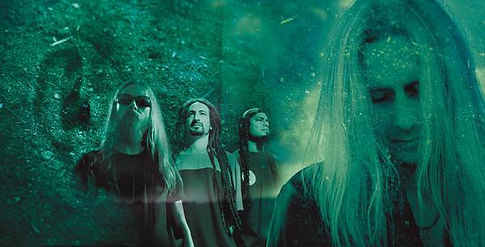
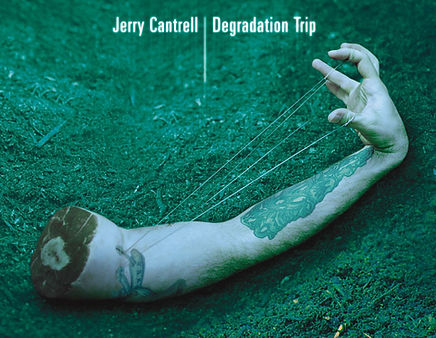
After some hard time searching for a record label, Cantrell finally found an ally in Roadrunner and they would bet on his work. At least partially in the beginning. The desire was always to record and release the album as the mind of genius-guitarist had conceived it, that is, a double album. But the executives of his new record label suggested he should release the album on just one CD, arguing that these days “nobody buys double or triple albums for commercial reasons”. But they made with the promise that in the near future it would be released in the form which was originally imagined. Jerry was in no position to make a strong defense of his idea, so he agreed, although he was a little reluctant. Also, the producer problem was solved, the position left by Jerden was filled by Jeff Tomei but only as co -producer. The other 50 % of the production would be covered by Jerry Cantrell himself. Tomei was a young engineer, who had been working with artists of the caliber of Corrosion of Conformity and Smashing Pumpkins, and got along very well from the beginning with Cantrell .
The album starts with "Psychotic Break" and is the perfect example of the 3 basic characteristics of Degradation Trip. Musically it's like a wall of concrete that comes over to you with a monstrous and dramatic riff that gives you goosebumps. Overlapping voices leave you on the edge of the shock because you feel like Layne is also singing. Lyrics show the genius affliction about their friends (Feel like a psychotic break comin'on / thinking 'bout my dead friends / Whose voices ring on). Cantrell somehow makes us feel that anguish over the loss of their loved ones because of the drug in Seattle, and it becomes even harder to know that Layne left us very close to the date this album saw the light.
A recurring theme throughout the catalog of Alice in Chains and of course in the solo career of the guitarist is the loss of true love. Again Cantrell uses music to express in the most honest way the sadness that chases him over losing the love of his life. " Angel Eyes " is a semi - acoustic ballad, and as the entire catalog of Alice in Chains , has a beautiful but sad feeling at the same time (She said I forgive you / do not regret our time / you ' ve got to move on love / Angel Eyes / Four years and still I dream / Agonize / Such beauty not since seen) . It follows another ballad, this time totally acoustic. "Solitude” is almost a photograph of the exile of Jerry and his mood when composing this album (When hurting yourself feels right, and there's nothing familiar in sight, take the time to pull the weeds choking flowers in your life ... / or seal your doom / cold transparent blue / locked inside a room / in solitude) .
The recording process had to be financed by Cantrell and it was necessary for him to sell his home in Seattle. Thus, Degradation Trip sees the light on June 18 in its reduced version, just 2 months after Layne´s death, what makes the album a sort of tribute to the brotherhood of these two geniuses of music. Cantrell was very affected by the loss of Staley, however chooses to continue with the scheduled tour and promotional sessions. Alice in Chains was history for Cantrell and the world. I will not make a review of this particular version because it´s not what the artist really wanted. Jerry had to make a great effort to make songs out, and leave this version as the record label executives wished.
Finally Roadrunner fulfills their promise and release on November of the same year the double version of the great masterpiece of Jerry Cantrell: Degradation trip Volumes 1 & 2
The work is a really dark piece, much heavier than his previous album "Boggy Depot". Closer to the sound of Alice in Chains, yet different, somehow denser than the former band of the guitarist, slow, swampy in many songs, giving way to a stifling atmosphere created by thick layers of guitar that seem indestructible Gothic cathedrals. The lyrics are part of Cantrell´s trademark: tortuous relationships, heartbreak, loneliness, anti-glamorization of the rockstar lifestyle, alienation. Suddenly it seems I´m talking about the Pink Floyd album, also double by the way, "The Wall" in terms of lyrics. There´s a big change on vocals, the naked voice showed on Boggy Depot turns into the classical overlapping voices a la Alice in Chains, but this time Layne is not here. However, you can hear him somehow. Jerry also confirms this: “He's my brother, he's my muse, my partner, so many layers; we spent so much time together and we´re so tied on so many levels. Layne was definitely the lead singer, but he gave me the confidence to develop into a lead singer as well. So we had two separate voices, but you could always hear each of us in each other's voices, know what I mean? Like, you listen to Degradation Trip and you can definitely hear him in there.”
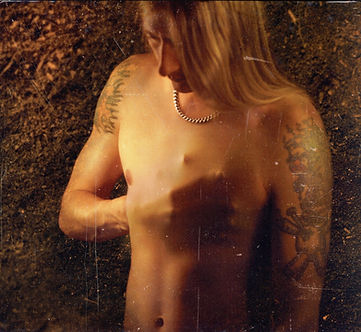
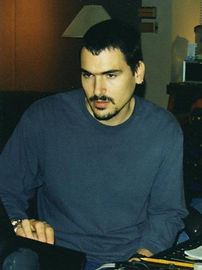
Productor Jeff Tomei
"Spiderbite" has a killer riff with clarity like we had never heard before in Cantrell´s sounds. It is very similar to "Sickman" not in musical terms but in terms of structure, a rather quick part, the development of the idea and in the middle of the song a slow stanza sung very slowly that reaches an unexpected climax with an explosive guitar riff plus a scream of Cantrell which make this song a must. Lyrically refers to Cantrell's addiction to cocaine (Caine / Caine / Caine / Slow poison working inside / descending in shadow / cocoon me then bite / Caine spider give to me pain / Caterpillar got a body and a butterfly brain). A highlight in the album.
Inevitably, a biography of Jerry Cantrell is not free of references to his friend and brother, Layne Staley. Whether by way of nostalgia, release or references to addiction. In the case of "Gone" it seems that Jerry was saying goodbye to his brother. It is a nostalgic ballad with a country touch that lead us to think that the paths of life sometimes join us then divides us, without any form of anesthesia (So they say with time, we slowly heal / I caught a flash of your smile, through the fog of a dream / I'll have a hell of a time, I clearly see / I can´t be by your side, I'll see you when i sleep / Now you're gone ... gone away). A great end for Volume I.
"Castaway" is very ambient somehow. You feel the anguish of a castaway and probably has one of the best choirs Jerry has developed. An abrasive and textured guitar complements this great song.
Among the important topics of the album, there is an attitude of anti-glamorization of the rockstar lifestyle. With irony Cantrell walks comfortably to mock the rockstars artificial environment, living in hotels, fans chasing them for autographs, life with prostitutes. This idea is developed quite well in the corrosive "Pro False Idol" in Volume I, however reaches a sublime perfection in "Dying Inside", where depression, hatred and irony seize Cantrell. This song has a psychedelic touch and the combination of acoustic and electric guitars (Hey Rock Star, got a cold beer Sure you do not mind do you / Is not life sweet, party non-stop, 24/7-cool / So would be proud? your mother / Anything you want, pick your lover / From here looks so fine / My god how your star shines ... Dying Inside). A masterpiece no doubt about it!!
"Pig Charmer" is a slow song with a thick and heavy guitar and it tells the story of a drugaddict in the deepest phase of addiction. When you put attention to lyrics you feel very shocked and can feel a deep sense of sorrow and disgust at the same time. It has really horrible lyrics in terms of installing the picture of a hopeless addict in our heads (And I say welcome to my sty / throw my shoe, turn light out / come on in, get high / Do not mind piss-filled bottles / hack and cough, I write / Peppered walls I spit out / and my future looks bright ... pretty sure I'm gonna fry / This time I hope I'm wrong, not right / Man I do not really want to die ). In my personal opinion I think it is a clear reference to Layne's disease. A terrible song.
Volume II and album close with a ballad that is musically beautiful. Again Cantrell´s folk and country roots are present in "31/32". It is perhaps the best vocal performance that Jerry has done throughout his career, with perfect shades according to the development of the music and lyrics that come to give chills. References to a tough childhood, family violence and relationship with his father are present in the lyrics of this very great song (Roust the boy, smack the wife / might have one tonight ... case / alcoholic breath, thick drool / Repetitive, belligerent, cruel, / Can´t get away, no hiding place / The boy hesitates, When grown he'll made the same mistakes). A perfect ending to this masterpiece called Degradation Trip.
There are many more solid, beautiful, terrible, emotional, choking, magnificent and sublime songs in this album and they are a must for any Alice in Chains, Jerry Cantrell, Rock fan in general. If you have not experienced this album, I recommend you do it soon. A strong, full of melancholy, heavy and reflective album that was written with the blood of the greatest among the great.
Article and translation: Schulz
